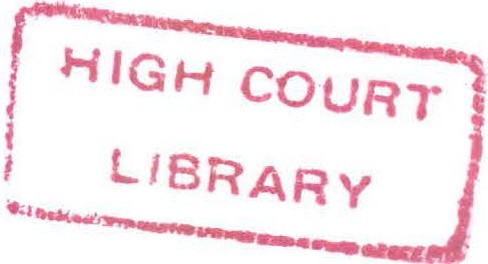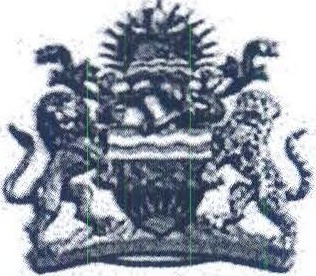
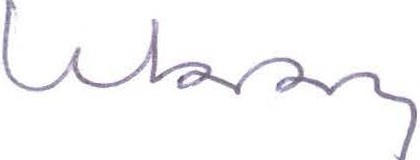
IN THE HIGH COURT OF MALAWI
PRINCIPAL REGISTRY
LAND CAUSE NO. 10 OF 2016 BETWEEN
FADWICK DANIEL NGWALAMBA PLAINTIFF
AND
CHINA GANSU LIMITED 1ST DEFENDANT
MULANJE DISTRICT COUNCIL 2ND DEFENDANT
CORAM: JUSTICE M.A. TEMBO
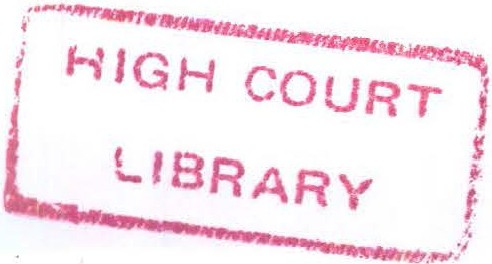
The Plaintiff is seeking continuation of an interlocutory injunction order restraining the defendants either by themselves or through their agents, servants or whosoever from trespassing onto the plaintiff’s piece of land registered as deed number 82499 in the deeds registry situate at Mulanje Boma until after the determination of the matter herein or otherwise ordered by the court.
The 1st defendant is a contractor engaged by Local Development Fund Support Team to construct a stadium for Mulanje District Council whereas the 2nd defendant is a Local District Council involved in the administration of the affairs of Mulanje District among others.
The plaintiff alleges that the 1st defendant with the blessing of the 2nd defendant has encroached on his piece of land under deed number 82499 being plot no. 128 at Mulanje and that in the process the plaintiff’s maize, cassava and natural trees have
been damaged and uprooted. The plaintiff further alleges that his rights have been violated by the defendants but the defendants deny these allegations and oppose the injunction and seek a court order to discharge the injunction for non-disclosure of material facts and for lack of grounds to maintain the same. The defendant further argues that the plaintiff’s claim, if any at all, is limited to damages if at all he can successfully prove loss.
The crucial issue for determination in this case is whether an order of interlocutory injunction should be continued restraining the defendants from trespassing onto the plaintiff’s piece of land registered deed number 82499 situate at Mulanje Boma until the issues between the parties herein are determined at a full trial.
In his submissions, counsel for the plaintiff avers that the law governing the grant or refusal of injunctions was propounded by Lord Diplock in the case of the American Cynamid Company v Ethicon Limited (1975) 2 WLR 316. This has been approved by the Supreme Court of Appeal in Malawi Mobile Limited v Malawi Communications Regulatory Authority [2006] MLR 280. Counsel noted the threefold test for grant or refusal of an injunction as follows
(a) Is there a serious question to be tried? If the answer is in the affirmative, then a further question arises;
(b) Would damages be an adequate remedy for a party injured by the Court's grant of or failure to grant an injunction?
(c) Where does the balance of convenience lie?
Counsel further submitted that it is trite law that the usual purpose of an interlocutory injunction is to preserve the status quo until the rights of the parties have been determined in the action. See Nyala Investments v National Bank of Malawi Civil Cause No. 3860 of 1998 (High Court) (unreported). Counsel for the plaintiff further argued that the plaintiff’s affidavit has clearly demonstrated that there are triable issues in this case relating to who has the right to occupy, use or develop the land in issue.
The plaintiff further argued that every parcel of land is unique. Therefore, it will be difficult to quantify damages if the plaintiff’ succeeds with his claim at the end of trial. Counsel further submitted that the balance of convenience tilts towards granting the interim injunction pending the determination of the action.
2
Finally, it was counsel for the plaintiff’s submission and prayer before this Court that the interlocutory injunction order be continued restraining the defendant from further trespass onto the plaintiff’s piece of land registered deed number 82499 in the deeds registry situate at Mulanje Boma until the determination of the action herein.
In his submissions for both defendants, counsel for the defence opposes the injunction and argued for the discharge of the same. Counsel pointed out that looking at this matter he is of the view that the plaintiff has not established that he may succeed at the trial of this case. On the first point, counsel directed the court to an exhibit TC 16 a letter according to which, the lease of the plaintiff over the land in dispute herein is said not to be genuine and wanting in procedure. He argued that by that letter, the Regional Commissioner of Lands is disowning the plaintiff’s lease and proposing a cancellation. Counsel argued that if the very people responsible for land matters do not support this lease, then the plaintiff has no prima facie case. He contended that it is likely that at trial, the plaintiff will not be able to prove his entitlement to this lease.
On the second point, counsel directed the court to consider an exhibit TC14, by which the Regional Surveyor General confirms that the lease of the plaintiff is within the lease of the 2nd defendant.
On the third point, defence counsel submits that the plaintiff did not follow the lease procedure as stated or shown in exhibits TC 2 to TC 13. According to these procedures, the plaintiff was supposed to apply for a lease. Once the application is done, it is sent to the Regional Lands officer where investigations are carried out. He added that exhibits TC 3, 4 and 5 illustrate that process. The Regional Lands officer then asks for sketch plans. Following that, the District Commissioner (D.C) has to give his consent. The D.C then has to surrender the land to the Minister of Lands responsible for land matters as per TC 10 and TC 12. After the surrender, there is an assignment of plot. Counsel went on to add that these were the procedures by which land is leased by the D.C. The defense points out that the plaintiff was fully aware of these procedures done between 1988 - 90.
The defendants further submitted, through counsel, that the plaintiff was aware of these lease procedures and ought to know that the 2012 lease by which he's claiming
the land in dispute herein is clearly not genuine. This is because the 2nd defendant has no records of the 2012 lease. They only have records of the 1988 -90 lease.
The defendants argued that the plaintiff has failed to produce his documents in reply to the ones produced herein by the defendants despite being served with the defendants exhibits papers.
The defendants further argued that if indeed the plaintiff had proper documents, he would have filed them in reply and he has not. And that, this goes to confirm that the D.C has no record about the plaintiff’s land. There is no consent from the 2nd defendant to the lease. The defendants therefore submit that the plaintiff has no likelihood of maintaining a proper case at trial. And that in terms of the principles governing injunctions that issue alone would suffice to discharge the injunction herein.
Defence counsel further submits that on damages, if there is a remote possibility that the plaintiff may have a triable case which he doubts, his view is that the plaintiff’s remedy lies in damages. The plaintiff would only be compensated in damages. Finally, counsel wound up by stating that the balance of convenience favors the discharge of this injunction with costs to the defendants.
In reply, counsel for the plaintiff’ stated that the first argument was that the plaintiff has not demonstrated that he would succeed. He retorted that the plaintiff is only required to show that there are triable issues.
He noted that the defence has relied on exhibit TC 16, but it has conflicting statements. He stated that the government of Malawi recognized the plaintiff as land owner by reason of the lease.
He argued further that it has been argued that the 2nd defendant has no document regarding the plaintiff’s lease. In order to prove that, the 2nd defendant, has exhibited TC3 and TC16. Counsel argues that proving the existence of documents in one transaction does not disprove existence of documents in another transaction. He noted that in paragraph 4 of exhibit TC 16, it is clear that there were documents and there was a letter. However, conveniently, the 2nd defendant did not want to bring one of the documents in issue herein. He submitted that the letter has to be shown to exist in another government department.
The plaintiff argued further that it would not be proper to argue that the plaintiff did not follow proper procedures. Counsel for the plaintiff further stated that it is improper for the defence to show lack of due process in one transaction by showing due process in another.
Further, counsel for the plaintiff avers that there are several reasons why the plaintiff has no document today but he did not want to go into that. The plaintiff noted that the 2nd defendant would like the plaintiff to prove ownership of the land herein when he has a title deed. The plaintiff’ submitted that the 2nd defendant has the onus to disprove the plaintiff’s title.
The plaintiff then submitted that damages would be an inadequate remedy as the land is next to the existing business of the plaintiff. The plaintiff observed that the defence has alleged that the plaintiff never paid any money, but this court should take judicial notice that no land can be obtained from any local authority without payment. Further, there are several charges in respect of property i.e. rates, etc.
Finally, counsel submits that the 2nd defendant having benefitted from rents and rates cannot tum around now and by now it would have repossessed the lease for non - payment.
The plaintiff asserted that the purpose of removing this injunction is so that the defendants may proceed with construction of the stadium. They would like to do that before they act to cancel the lease. Counsel stated that he is disturbed by that kind of thinking that local government would like to build on land that is in the plaintiff’s name. The local government does not find it necessary to deal with ownership before construction. If this injunction is lifted, the defendants will commit a breach on the lease so it is not proper for the defense to say that they should ignore the issue of ownership until a later time.
In conclusion, counsel prayed that the injunction be sustained with costs to the plaintiff.
In disposing of this matter, this Court notes that the issue at hand is about the question of ownership of the land in issue. The plaintiff’ showed prima facie that he has a lease that entitled him to the land. The 2nd defendant alleges that the plaintiff fraudulently acquired the land. There is a triable issue disclosed by the plaintiff. If
the plaintiff proves title and the 2nd defendant fails to disprove the same, then it would not be just and equitable to lift the injunction now.
The point is as made by the plaintiff, that the 2nd defendant should first disprove the title. As already noted, land is unique and damages have been held to be inadequate by numerous authorities, so damages cannot be adequate.
Upon hearing counsel for both the plaintiff and the defendants and in the premises, it is hereby ordered as follows
That the Land Register ought to be rectified by Land Authorities first.
That the 2nd defendant takes appropriate steps to disprove the land ownership claimed by the plaintiff as evidenced by the disputed lease.
That damages may not be an adequate remedy in the circumstances.
That meanwhile, the balance of convenience lies in favor of maintaining the injunction until a further order of the court or a final determination of this matter
That trial of this matter be expedited.
The order of injunction herein shall therefore subsist until determination of this matter by trial or otherwise.
Costs are for the plaintiff.
Made in chambers at Blantyre this 11th February 2016.
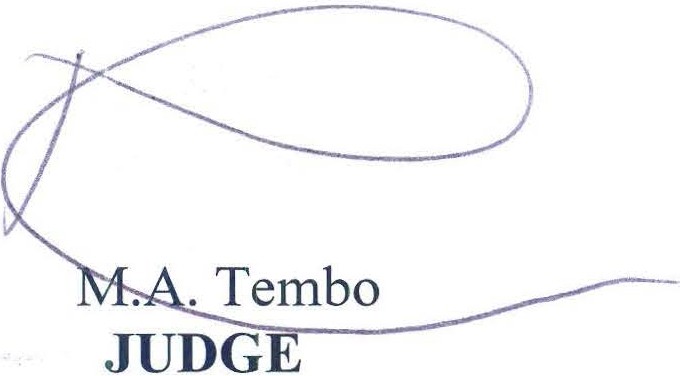
1
